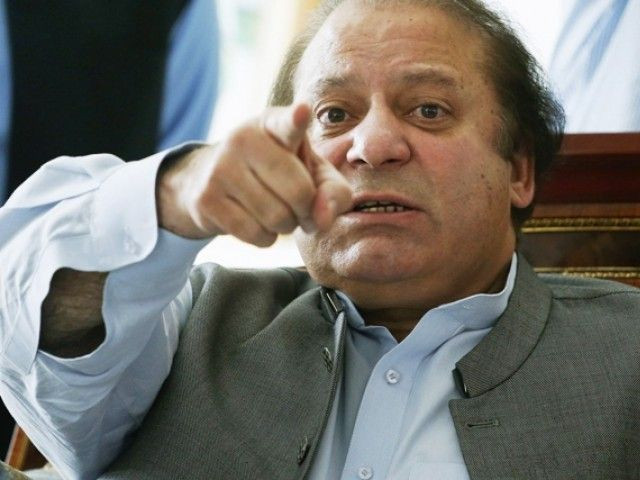We Are Not Sending Troops To Gulf States To Help Fight Assad In Syria: Pakistan PM Nawaz Sharif

Pakistan’s Prime Minister Nawaz Sharif denied media reports Thursday that he is planning to send troops to Bahrain and Saudi Arabia to help the Persian Gulf States fight the forces of Bashar Assad in Syria, nor has he been asked to. Dawn, an English-language Pakistan daily, reported that Sharif made the denials while attending a ceremony at the newly named M.M. Alam Airbase in Mianwali. “Neither any country has requested Pakistan to send forces nor will Pakistan send its troops to any other country,” Sharif said in refutation of the rumors, reported GEO-TV.
But speculation has arisen as the reigning monarch of Bahrain, King Hamad bin Isa bin Salman al-Khalifa, is on a three-day official visit to Pakistan, attended by a large delegation that includes his defense and security chiefs. Dawn noted that King Hamad and his aides even made an “unprecedented” visit to the Joint Services Headquarters, the principal headquarters of Pakistan’s Joint Chiefs of Staff Committee in Rawalpindi, a highly unusual event for a foreign head of state.
While the Pakistanis claim the visit by the king is designed to upgrade trade and investment links between the countries, Dawn noted that Bahrain seems more interested in enhancing defense links. The crown prince of Saudi Arabia and the Kuwaiti prime minister have also recently visited Pakistan – Sharif also asserted that these trips had nothing to do with the dispatch of Pakistani troops to the Middle East.
On Thursday, a Foreign Ministry spokesperson, Tasnim Aslam, reiterated that Pakistan will not send troops to Syria nor arm the rebels there. Although Pakistan has close ties with Syrian ally Iran, Aslam assured that Pakistan will not take sides in Mideast conflicts.
But in 2011, as the Arab Spring revolution exploded across the Middle East, Bahrain recruited troops from Pakistan to help stamp out a Shi'a rebellion. The revolt was crushed with the aid of Saudi troops. Saudi Arabia, Bahrain and other Sunni Muslim-dominated Gulf states have led the charge against Assad (an Alawite related to Shi'a Islam) and have reportedly sent money and arms to rebel groups seeking to topple the Damascus regime. Pakistan is also a Sunni-dominated Muslim state.
Michael Kugelman, senior program associate for South and Southeast Asia at the Woodrow Wilson International Center for Scholars in Washington, commented that sending Pakistani troops to Syria would be a risky and even dangerous idea. “The best place for Pakistani troops to be is in Pakistan, fighting against Pakistani militants, not against pro-Assad forces in Syria,” he said in an interview. “In an ideal world, rational heads would prevail and Pakistani troops would stay at home.”
However, Kugelman added that the notion can’t be completely ruled out, since, as noted, in 2011 private Pakistani security forces went to Bahrain to help put down a popular uprising. “Also, Pakistan is deeply beholden to Saudi Arabia, which certainly wants Pakistan to send forces to Syria. Pakistan doesn't take any Saudi request lightly,” he said.
In a related development, the Daily Times newspaper of Pakistan reported Tuesday that Saudi Arabia made a “gift” of $1.5 billion to Pakistan in order to guarantee that Islamabad does not provide arms to Syria, citing comments from Sartaj Aziz, an adviser on national security and foreign affairs to Sharif. Aziz told the Pakistani Senate’s Foreign Affairs Committee that Pakistan accepted the “gift” on the condition that it not send any weapons to any nation engaged in civil war, including Syria. But some members of the committee were dissatisfied by Aziz’s replies, citing that arms could still be transferred to Syria via third parties. As for the $1.5 billion “gift,” officials at the Finance Ministry and central bank said last week that such funds will be used to boost Pakistan’s slipping foreign currency reserves and to tighten “security ties” between Riyadh and Islamabad.
© Copyright IBTimes 2024. All rights reserved.





















